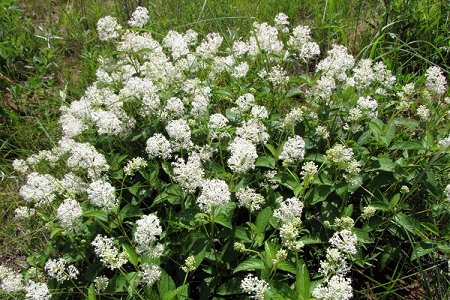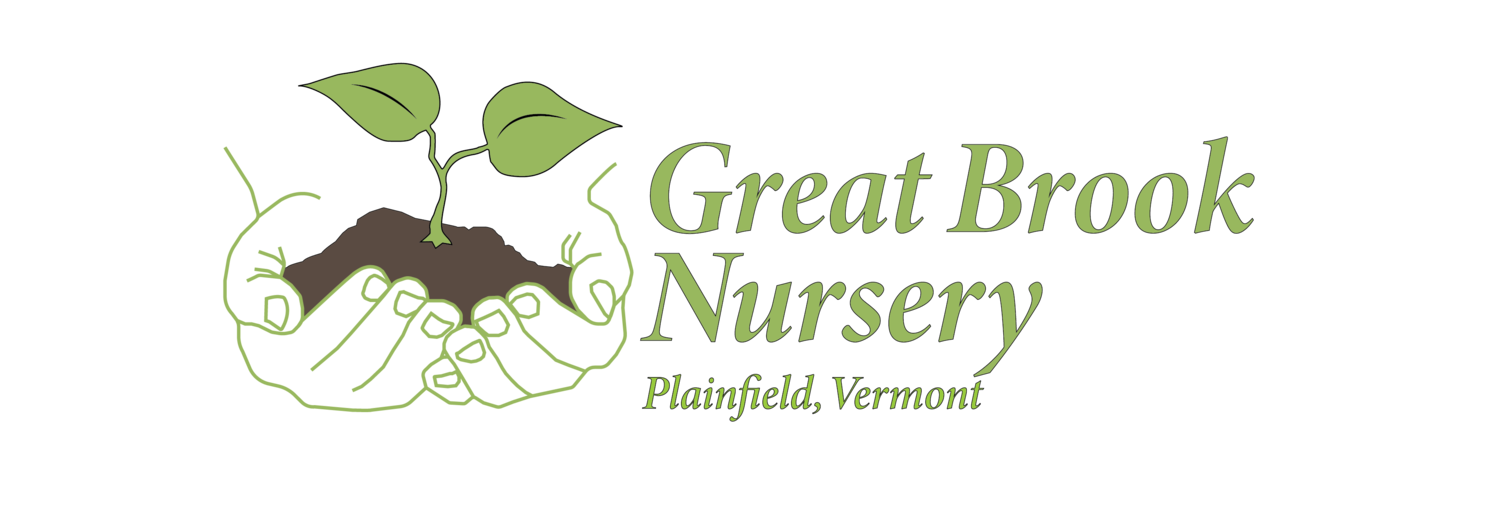 Image 1 of
Image 1 of


Ceanothus Americanus (Rhamnaceae)
New Jersey Tea or Redroot is a small native shrub with showy umbels of white flowers that can reach 4ft wide 4ft tall under ideal conditions. This genus has many ornamental cultivars and hybrids, most from the Western species which is not hardy in zone 4. C. Americanus likes a dry, stony soil and does ok with low fertility because it can fix atmospheric nitrogen. The roots and root bark are astringent and used medicinally for pulmonary complaints. It is also reputed to strengthen the lymphatic system. The leaves have a slight evergreen smell and were used by early Europeans as a stimulating, non-caffeinated beverage. Hence the common name New Jersey tea.
NOT AVAILABLE THIS YEAR
Do to flooding last year, we lost the few larger plants we had. We have a new batch coming along for next year.
New Jersey Tea or Redroot is a small native shrub with showy umbels of white flowers that can reach 4ft wide 4ft tall under ideal conditions. This genus has many ornamental cultivars and hybrids, most from the Western species which is not hardy in zone 4. C. Americanus likes a dry, stony soil and does ok with low fertility because it can fix atmospheric nitrogen. The roots and root bark are astringent and used medicinally for pulmonary complaints. It is also reputed to strengthen the lymphatic system. The leaves have a slight evergreen smell and were used by early Europeans as a stimulating, non-caffeinated beverage. Hence the common name New Jersey tea.
NOT AVAILABLE THIS YEAR
Do to flooding last year, we lost the few larger plants we had. We have a new batch coming along for next year.
New Jersey Tea or Redroot is a small native shrub with showy umbels of white flowers that can reach 4ft wide 4ft tall under ideal conditions. This genus has many ornamental cultivars and hybrids, most from the Western species which is not hardy in zone 4. C. Americanus likes a dry, stony soil and does ok with low fertility because it can fix atmospheric nitrogen. The roots and root bark are astringent and used medicinally for pulmonary complaints. It is also reputed to strengthen the lymphatic system. The leaves have a slight evergreen smell and were used by early Europeans as a stimulating, non-caffeinated beverage. Hence the common name New Jersey tea.
NOT AVAILABLE THIS YEAR
Do to flooding last year, we lost the few larger plants we had. We have a new batch coming along for next year.

